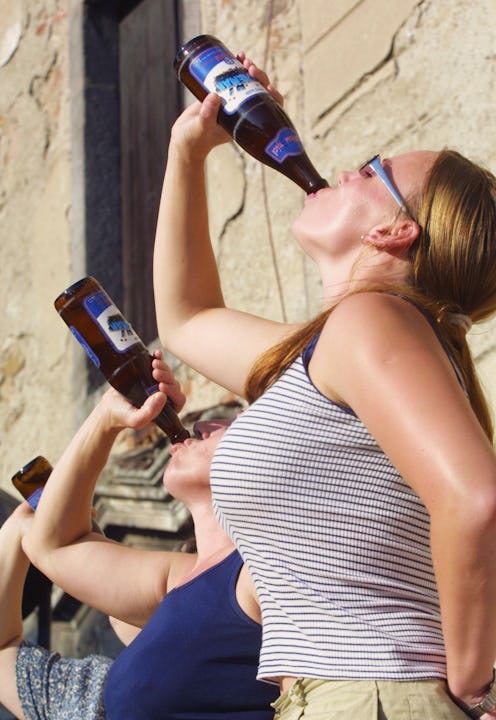News
How American Binge Drinking Compares to Others
Binge drinking is a pretty big problem, in the U.S. and elsewhere, and a new report details just how big. In 2012, harmful use of alcohol caused 3.3 million deaths worldwide, according to World Health Organization report. A recent scientific study revealed just how detrimental even one episode of binge drinking can be on our health. Now WHO is urging governments to do more to reduce harmful drinking. But is doing more really the answer to getting people to drink less?
The report found that some countries are already implementing more regulation to curb harmful alcohol consumption. These measures include increasing taxes on alcohol, limiting its availability by raising age limits, and regulating marketing. While these steps may make gaining access to alcoholic drinks more difficult, one GuardianHarticle suggests that it may not have the intended widespread effect of reducing binge drinking.
Sadhbh Walshe compares certain countries with stricter alcohol policies, like the U.S., the UK, and Ireland with ones that have lax laws, like Italy. Interestingly, she finds, the ones with more regulation also have higher rates of binge drinking.
"The United States is relatively puritanical about boozing – the legal drinking age is 21, liquor taxes are high, sales are regulated and public drinking is a no-no in most places. Yet binge drinking is a popular sport in the US, even among teenagers. The WHO report says 24.5% of American drinkers engage in bouts of heavy episodic drinking.
Despite early pub closing times and high taxes on alcohol sales, Britain's binge drinking rate is even worse, at 33.4%. In Ireland, where the laws are even stricter than in the UK, I'm embarrassed to say that a whopping 48.2% of drinkers binge."
In contrast, Italy, where alcohol is far less expensive compared to the countries above and the legal drinking age was 16 until last year (it's 18 now), had a binge-drinking rate of just 6.2%. Why is that? Walshe suggests that it's not the laws that bring down the statistics, but the culture.Let's continue to use Italy as a prime example of a country whose culture dictates how alcohol is consumed. According to a research paper by David J. Hanson, Ph.D., titled "Italian Teens Frown on Binge Drinking," the Italians have three keys to success when it comes to drinking:
- Alcohol itself is seen as a neutral substance — neither good nor bad. It's how it's used that is important.
- There are only two acceptable options when it comes to drinking: 1) to abstain or 2) to drink responsibly, which means in moderation. Abuse of alcohol, or drinking in excess, is not tolerated.
- People start drinking at an early age at home, which is a safer and more supportive environment than, say, a frat party. You'll inevitably learn to drink more responsibly under your parents' watch than with friends or acquaintances.
Walshe agrees by citing the opposite effect in countries with less healthy mentalities on drinking, like the U.S. for instance. Even though we have more laws to inhibit access to alcohol, the overall message that our culture sends our youth often compels them to ignore them.
"Drinking (and binge drinking) is still so common among underage students that universities might as well hand out fake-ID cards along with their prospectuses to save the kids time. The strong cultural message that drinking to excess is a normal rite of passage, I think, has more bearing on student behavior than any regulations imposed by the government."
Most of us probably remember participating in, or at least witnessing, a rager at some point in our lives, which was most likely before our 21st year. And what was the main goal at those things — the agenda that every single partygoer shared? To get drunk. Along with the smell of cheap beer mixed with cheap cologne, thinking back to those parties probably conjures to mind that unspoken competitive spirit that everyone seemed to have when it came to who can drink the most. Sometimes it wasn't unspoken; sometimes it was that one asshole yelling at everyone to take that shot "or you're a pussy!"
Am I painting a familiar picture for you? If the answer is yes, then Walshe's point has been made. This "drinking as a rite of passage" mentality permeates our culture, and it needs to change. It won't happen over night, but the mental shift can start at home, in schools, and among friends. It's time that we stop imposing new laws on the youth and moralizing their behavior and start spreading the message that binge drinking is, hey, maybe not that cool. Capisce?
